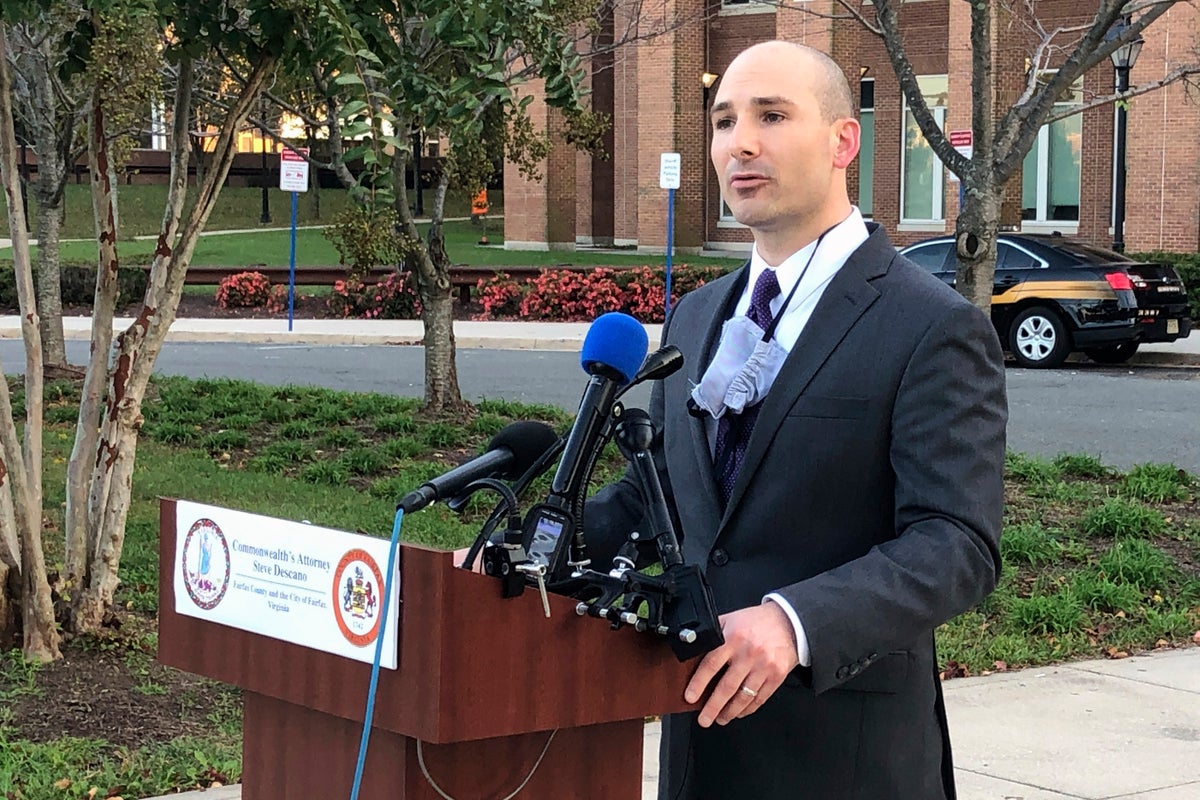
In the four years since progressive reform prosecutors swept into office across northern Virginia, they have faced constant criticism, ranging from conservatives who deride them as bleeding-heart “ Soros prosecutors ” to judges who claim they abuse their discretion.
Now, as these prosecutors are up for reelection in Virginia’s off-off year elections, the challengers in next month’s Democratic primaries aren’t challenging the reform agenda. Instead, they too are casting themselves as reformers.
Political analysts look to Virginia’s odd-year elections for clues about voter sentiment heading into midterms and presidential years. This year, the prosecutor races may show how voters feel about crime, three years after protests over racial injustice both energized progressives and prompted a conservativebacklash.
Stephen Farnsworth, a political science professor at the University of Mary Washington, cautioned against drawing sweeping conclusions from a primary that historically draws only a narrow slice of the electorate. Still, he said if voters were to reject reform incumbents, it would be noteworthy.
“If the incumbents can’t persuade that sector of the electorate that the reform agenda is the agenda to pursue, then that’s a warning sign for the Democratic Party,” he said.
Nationally, reform prosecutors have had mixed political success after their initial elections. In San Francisco, voters recalled District Attorney Chesa Boudin over rising crime concerns. St. Louis Circuit Attorney Kim Gardner announced her resignation earlier this month amid pressure from Republicans, and in Chicago, Cook County State’s Attorney Kim Foxx last month said she won’t seek another term.
But in 2022, reform prosecutors in Dallas and Indianapolis won reelection despite tough opposition. And in 2021, Philadelphia’s Larry Krasner, an icon in the criminal justice reform movement, won a second term.
The Virginia races, meanwhile, may provide more insight into the views of suburban voters. The primary challengers, thus far, are embracing the reform agenda. Even Ed Nuttall, who is running as a “common sense” Democrat and is best known for representing police officers charged with misconduct by the reformers now in office, has sought to embrace the mantle of reformer.
“Sure, why not?" Nuttall said when asked whether he considers himself a reformer.
He said he supports efforts to find alternatives to jail for nonviolent offenders dealing with addiction and mental health issues.
The problem, according to Nuttall and the other primary challengers, is mismanagement of day-to-day affairs. They cite turnover in the offices and criticism levied by crime victims and judges that cases have faltered because prosecutors have failed to follow procedure.
“There’s a lot of frustration in the courthouse with everyone about how these cases are being handled,” Nuttall said.
Nuttall's opponent, Fairfax Commonwealth's Attorney Steve Descano, who won four years ago after knocking off a longtime incumbent, said the mismanagement critiques are off base. While there have been hiccups, he said critics fail to recognize the massive overhaul his office has undertaken.
“It takes more than one term to undo decades of bad policy, decades of injustice,” Descano said.
Nuttall's race against Descano is one of three in northern Virginia, the wealthy suburban area outside the nation's capital. In Arlington County, closest to the District of Columbia, Josh Katcher is challenging his former boss, Parisa Dehghani-Tafti. And in the outer suburbs of Loudoun County, attorney Elizabeth Lancaster is challenging incumbent Buta Biberaj.
Incumbents say the challengers' effort to paint themselves as reformers rings hollow. In Loudoun County, Biberaj says her opponent's support comes from Republicans who have sought to block reforms.
“We’ve actually done the work since coming into the office,” Biberaj said. “So when you've got these challengers saying, ‘I am a true reformer,’ — well, what have you done?"
Lancaster said her reform credentials are solid. She worked as a public defender for more than a decade and served on a task force that overhauled the prosecution of juveniles. She said she was recruited to run by members of the county bar who are frustrated with mismanagement in the prosecutors' office.
"As an 18-year Loudoun County attorney, it's embarrassing, and it gives criminal justice reform a bad name and it pisses me off," she said.
The incumbents are facing criticism not just from their opponents but in many cases from the judges in their own courthouses. In Arlington County, some judges require Dehghani-Tafti's prosecutors to file written briefs outlining why they are dropping charges against defendants, a time-consuming process that she says infringes on her discretion.
Dehghani-Tafti said the answer is not to replace her, but the judges.
“Get a new bench,” she said, noting that two of her deputies have now been chosen to serve as judges in Arlington.
Her opponent, Katcher, has faulted Dehghani-Tafti for an inability to build relationships with judges, police, and with her own staff that has thwarted real reform.
“I have both the experience and the relationships to deliver real reform and real justice,” he said at a debate last month.







